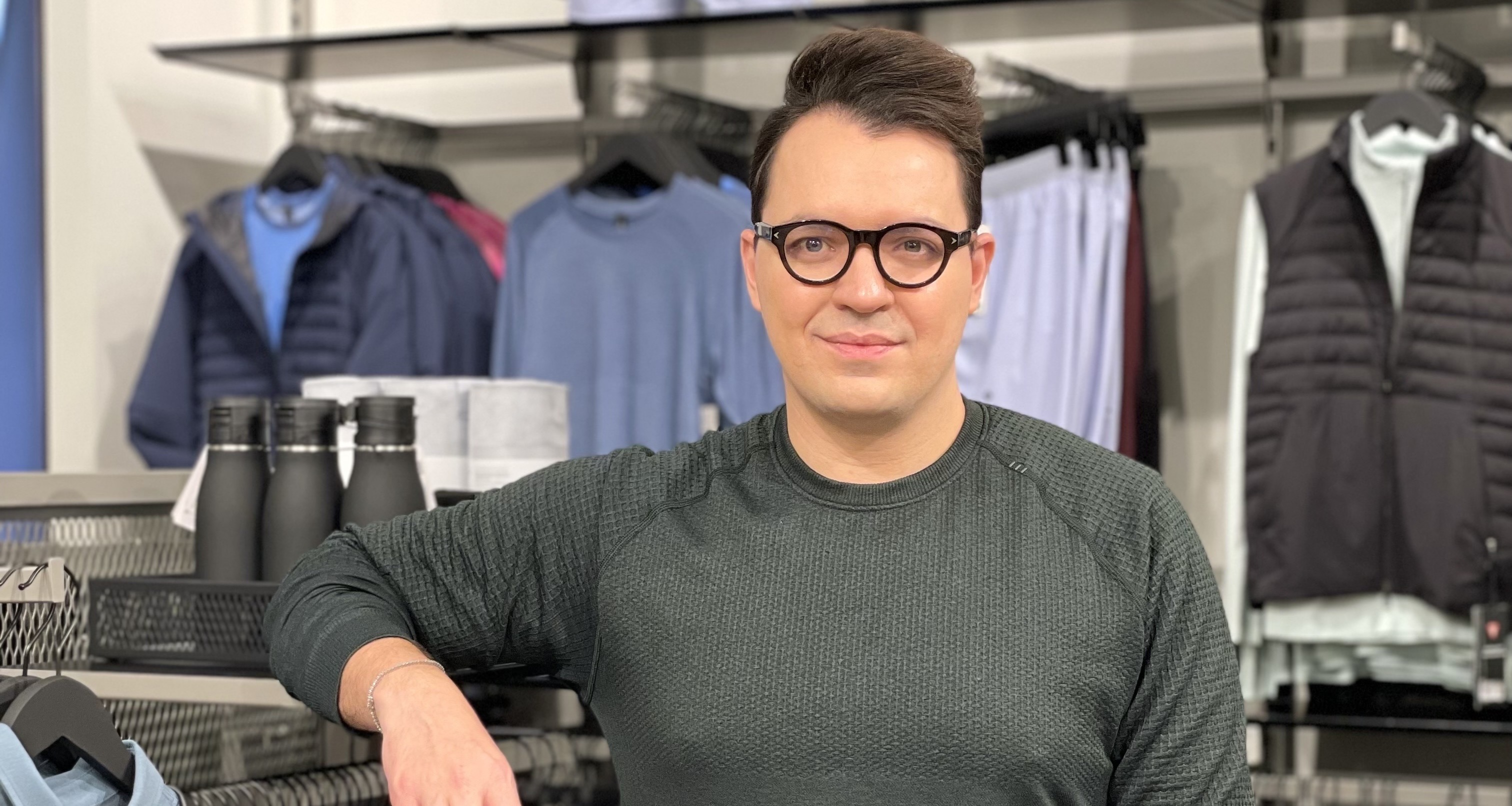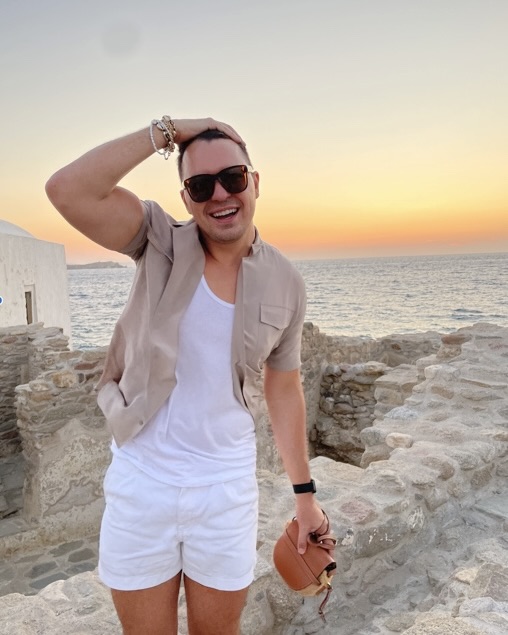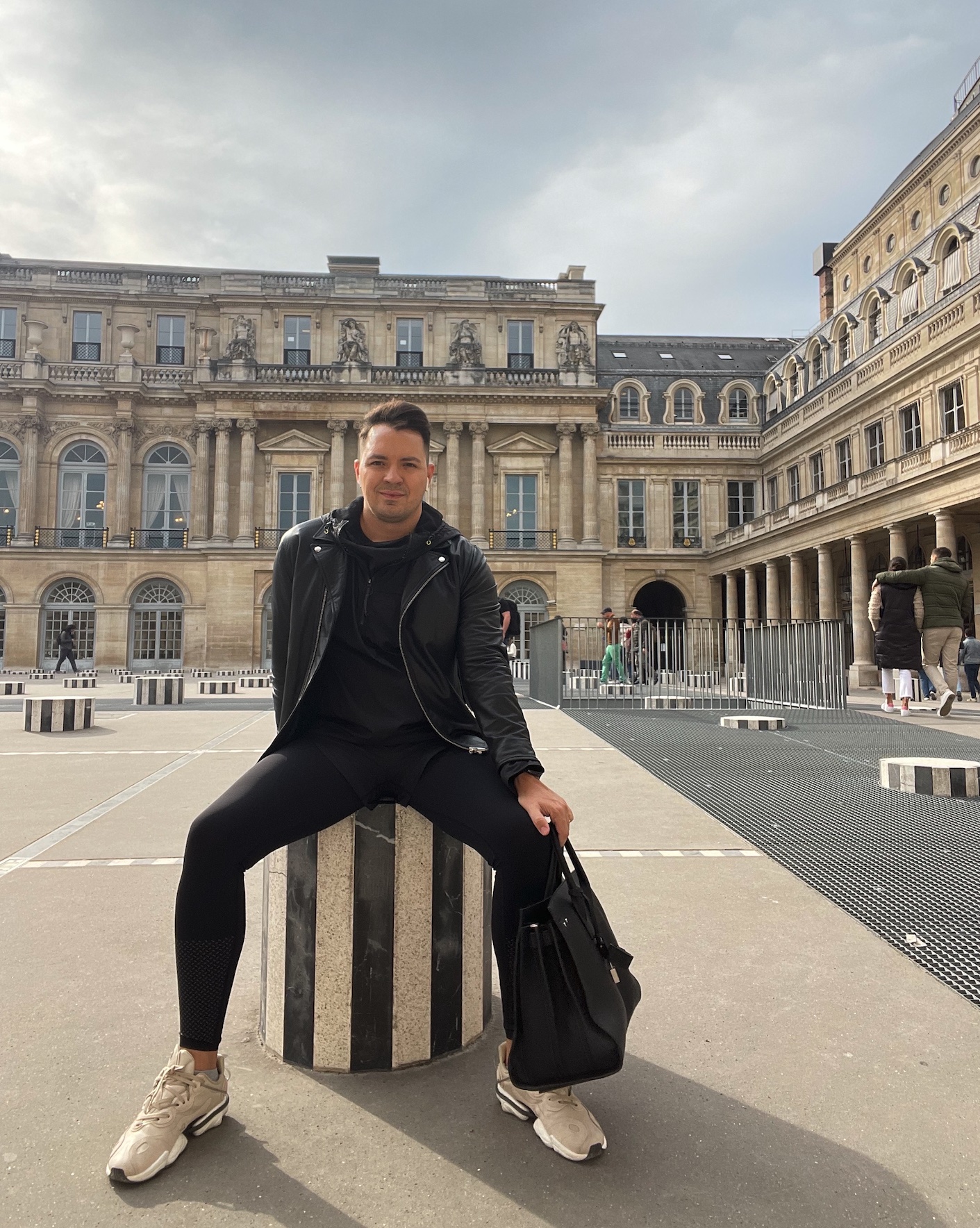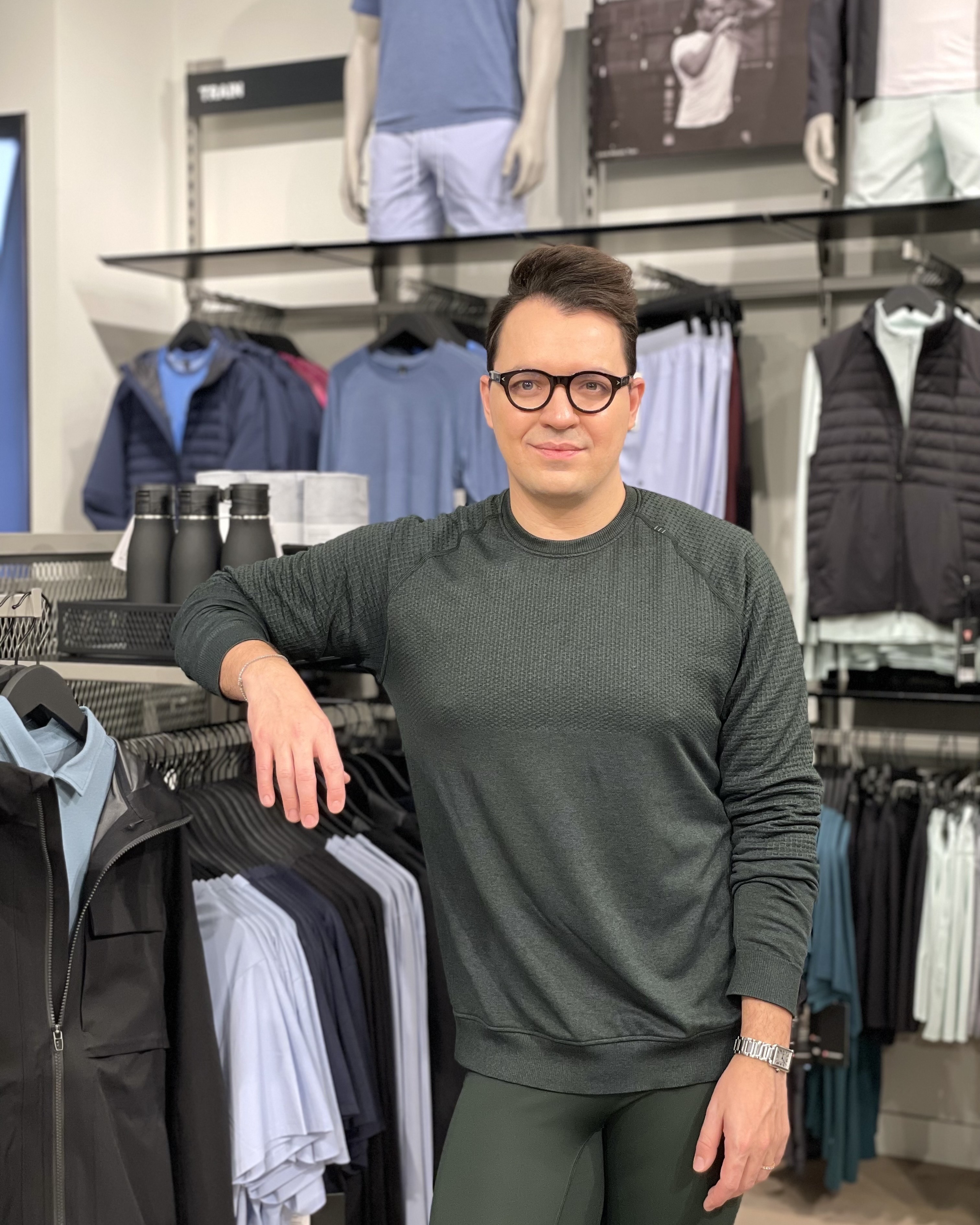‘There is still a long way to go’ in the fight for inclusion and diversity
In partnership with myGwork.

Pictures: Provided
lululemon’s Dr. Gus Bussmann talks to myGwork’s Pepi Sappal about the fight for LGBTQ+ inclusion in both the international arena and in the corporate world, and his dream mission to create a sense of belonging for all.
Gus Bussmann’s fight for LGBTQ+ inclusion started in Brazil before he came to Europe when he pursued his Ph.D. with a focus on LGBTQ+ inclusion rights.
He is now continuing his passion as the IDEA (Inclusion, Diversity, Equity, and Action) Manager for Europe, the Middle-East, and Africa (EMEA) at lululemon, which he started over a year ago.
Working with the retail brand that’s focused on wellbeing presented Gus with an opportunity to work for a company that was “genuinely committed to creating an impact and encompassing a culture of inclusion where diversity is celebrated, equity is the norm and action is the commitment”.
When Gus relocated to London to focus on his Ph.D., he explored how LGBTQ+ people should be legally recognised as a community. “I had the chance to learn more about how this community fought for inclusion, the right to be part of the society, and the strength to challenge expectations that were posed on us,” he shared.
Gus believes it’s his duty to continue the fight for LGBTQ+ inclusion, started by his brave predecessors: “As I graduated in law and continued my studies in human rights and LGBTQ+ inclusion, I increasingly learned about the many untold stories. Queer people were often erased from history and their impact minimised as a product of our heteronormative constructions.”

A key realisation resulting from that research was that “the fight for same-sex relationships and being legally accepted in the US lagged for about twenty years,” Gus explained. “In fact, it only succeeded when we legally used the rights of the Black community as a case study.
“For me, this epitomises that you can only succeed if you join efforts with [other] marginalised communities. When we talk about Black Lives Matter, LGBTQ+ inclusion, and transphobic crimes in Europe today, I believe the only way to be really seen and included is through a joint effort.
“As in the work of IDEA, however, the fight continues in terms of inclusion – there is still a long way to go.”
Gus got a scholarship to carry out research on international LGBTQ+ rights. His studies led him to the Hague’s International Criminal Court, and to an additional scholarship to continue this research in the UK. “Through different scholarships, I got an opportunity to dive into different cultures, legal frameworks, and spaces to learn about the intersections of my community,” he reflected.
But Gus’s journey to the UK from Brazil brought many surprises. Not only did he meet his future husband, but shockingly, he experienced workplace discrimination for the first time. “It surprised me that, in spite of always being out and proud of my identity, London was the first time where I found myself in a workplace that did not fully accept me,” he revealed; especially considering that his work was specifically connected to LGBTQ+ rights.
“I was working at a law firm in London where I was the only LGBTQ+ person out of over fifty employees. I was battling with a workplace that was happy to profit from the LGBTQ+ community, yet unwilling to create an environment where we could feel that we belonged.”
This, along with experiencing microaggressions at work for being openly gay, spurred Gus to finish his studies and continue his fight for inclusion. It was also around the time that he got married. “It was a moment of learning and unlearning; of forging our life as a (to be) married gay men and figuring out which traditions we would like to keep, but also how we wanted to challenge environments to breakout from societal expectations” he shared.
“Being more aware of microaggressions in my workplace and the importance of experiencing inclusion and a sense of belonging, it also really struck me that I could be a better champion for my community. I embraced the word ‘queer’ even more, which for me is more than an identity, but a political statement of non-conforming.
“I committed to doing everything in my capacity to dismantle the instruments that regulate, control, and stigmatise our bodies and our identities.”
Gus acknowledged that his experience in the Brazilian workplace was actually more supportive than the UK one. His coming out experience is not a common one for those growing up in the nineties: “Growing up as a queer person in Brazil feels dangerous as there is one hate crime against the LGBTQ+ population at least every twenty-one hours.
“But also, a shared experience with the majority of the LGBTQ+ community is that I was not really exposed to role models. At that time, there were no successful, inspiring examples to help me through my journey. I just didn’t believe that living my true identity was possible, which is why my coming out journey didn’t happen until I was about twenty.”
He acknowledges that his coming out story is privileged and completely different from a lot of his peers: “I always knew that I would be supported by my family, but growing up in Brazil makes you really aware of differences in society.
“In every interaction and venture, you are exposed to social inequalities, racial diversity, and an inequality of opportunities. Not everybody has the chance to have two families celebrating a wedding of two gay men, nor that every gay person can come to a board meeting, wearing a wedding ring and being able to talk about their husband, or challenge senior leaders to have their pronouns on their resume.”

Being aware of his privilege and having access to a good education, a comfortable and loving home, and a supportive family, sparked his ambition to support and fight for those who struggled to live their lives openly as LGBTQ+ people. About the same time that Gus got married, he noted that society was also experiencing a shift in mentality, following the Black Lives Matter movement.
“The way we perceived diversity, equity, and inclusion (DE&I) was changing and I saw an opportunity to start a more meaningful journey where I could be more intentional in the way I wanted to drive change,” he explained.
His role at lululemon was perfectly timed to enable him to “continue to be an instrument of inclusion and help to achieve authentic and meaningful change,” said Gus. “I wanted to work for a company where I didn’t have to prove the worth of DE&I. lululemon publicly declared its IDEA commitments in August 2020. The experience at lululemon showed me that the culture is authentic – that there is a shared responsibility of bringing these commitments to life.
“An example is that every director is responsible for delivering diversity and inclusion in the company. The company’s IDEA commitments trickle down to every department, to each employee and customers. When guests come to our stores, we work hard to ensure they belong, regardless of their background, body shape, sexuality, etc.”
In his role as IDEA Manager at lululemon, Gus works across countries and cultures to drive positive change and create opportunities to attract diverse talent, but also make sure that every employee feels like they belong, which he describes as the “best part” of his job.
“I collaborate with people from different areas to make sure that IDEA is infused in everything we do and I am supported as part of this sustainable approach to inclusion, diversity, equity, and action. There is a commitment from the top and constant feedback from our teams, to create an ongoing dialogue between the members of our collective. It’s important for me to know that we can influence people at all levels, and to know I am seen as an enabler, not the sole responsible for that. It is a collaborative approach,” explained Gus.
“But ultimately, what makes me the happiest and most fulfilled is that I am part of an organization that uses its voice to advocate change. We leverage our platform to communicate with and amplify diverse voices and galvanise these communities to act. It constantly reminds me of my purpose; and how I want to support people to fully embrace their identities and bring their whole selves to work. It brings me back to my original goal of helping to create inclusion wherever I can.
“At lululemon we want everyone to realise their full potential and we believe that when life works, work works,” highlighted Gus. “Investing in our people is a top priority. We commit to creating a welcoming, inclusive environment where everyone has a sense of belonging, can thrive, make an impact, and be celebrated.”

Gus would like to see other companies also committing to this kind of authentic change and inclusion: “At lululemon, it’s important not just to have diverse faces at the table. We want every voice at that table to be heard, particularly LGBTQ+ voices.
“We want them involved in the design of products and initiatives that cater to their needs. Instead of expecting our community to fit in, companies need to create spaces where LGBTQ+ professionals can flourish and thrive, bring their whole selves to work, which means letting us have a say in how those environments are created.
“Finally, I’m part of a journey at a company that promotes inclusion, where we are recognised for our uniqueness and embraced for who we are. Being part of the IDEA collective at lululemon, I can be relentless and unapologetic about who I am; which ultimately allows me to live my dream and continue my mission to create a sense of belonging and inclusion for all,” he concluded.
lululemon is a proud partner of myGwork, the LGBTQ+ business community.
